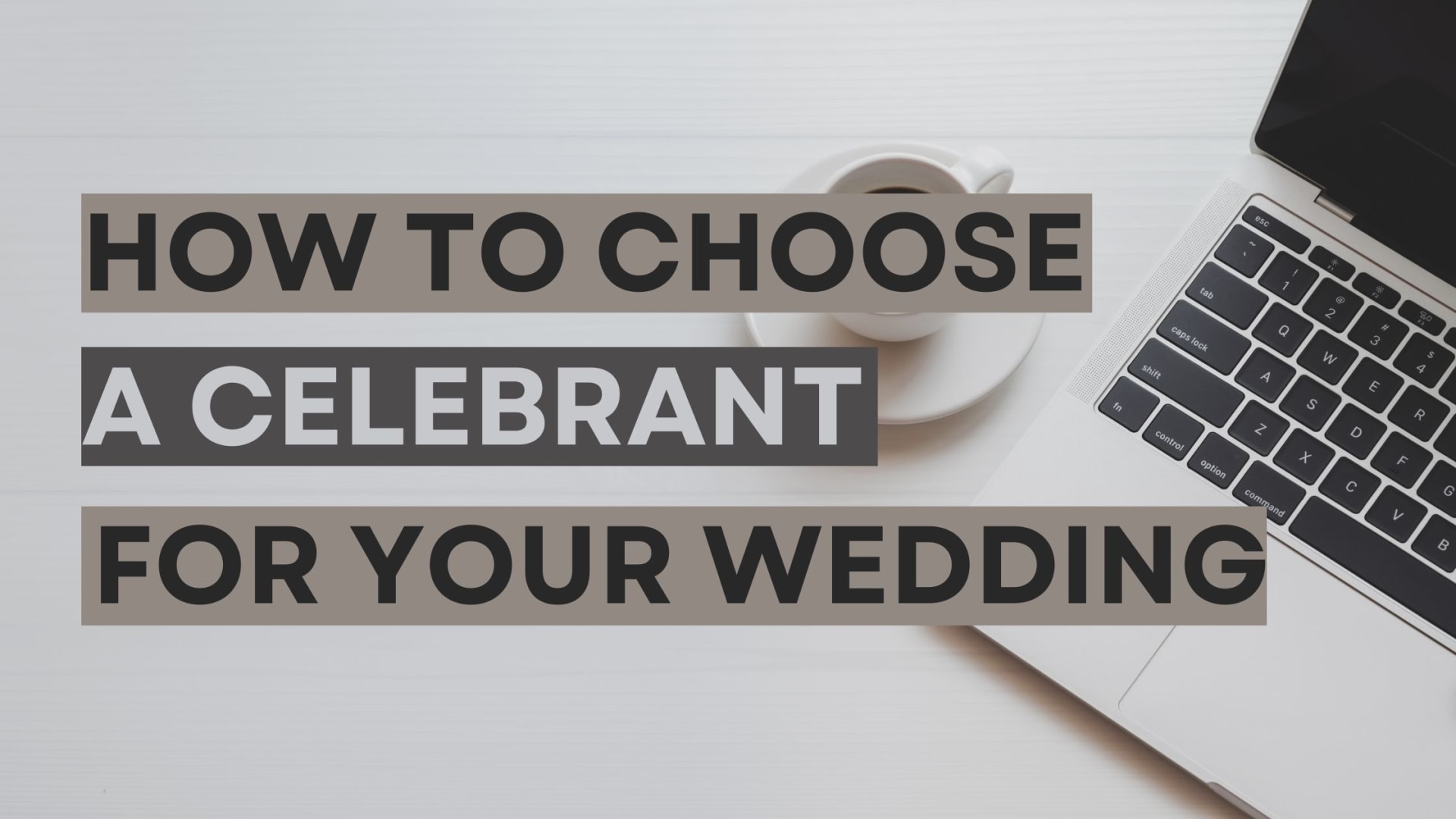How to choose a wedding celebrant
There are a number of things you should check before you book and pay for a Commonwealth authorised marriage celebrant in Australia

When choosing a wedding celebrant, there are several things you should consider before making your decision. Consider this the ultimate checklist for choosing a wedding celebrant:
Authorised by law: Is the person authorised by Australian law to marry people according to Australian law? Make sure you can find them on the Attorney-General's list of authorised celebrants. If they are a religious minister, given authority not by the government but by their church they'll have the authority to only marry you in the state in which they are a registered minister.
Compatibility: You'll want to find someone whose values, beliefs, and personality align with yours. If you don't like them as a person, you're going to hate them as a celebrant.
Experience: Does the celebrant you are choosing have prior past performance doing what you need them to do? This isn't to say you need to have a celebrant who's been doing it for hundreds of years, but you want to know that the person can do what you're asking them to do.
Reviews: Look for recommendations or read reviews from Facebook or Google or here on the Celebrant Directory from past clients to get a sense of what it's like to work with them.
Communication skills: You'll want to find someone who is responsive, easy to work with, and responds to phone calls and emails in the speed you appreciate.
Cost: A good celebrant charges a good fee. Make sure you've read the product offering, either in their information pack or on their website, so you know what you're getting and that it's what you want. A more experienced and professional celebrant will cost more than a newer or less-professional celebrant. Expect to pay between $500 and $2500 for a celebrant, depending on your expectations on what kind of ceremony you want and will expect from them.
Flexibility: Some celebrants are more flexible than others when it comes to customising the ceremony to suit your needs. Their contract will detail how flexible they are around time changes, date changes, and location changes. Remember however that your wedding vendor is not your wedding insurance, you should not expect them to shoulder the burden of pandemics or disasters affecting your wedding plans.
Availability: check if they are available on your wedding day at the time and location required. Tell them the actual ceremony start time, the "down the aisle" time.
Expectations: Make sure you understand what the celebrant expects of you, and also, make sure you know what you expect of your celebrant and that your expectations are in writing and met by their contract. The biggest cause of wedding "disasters" is a simple case of lack of communication and un-communicated expectations.
Network: Things happen in life, like illness, accident, pandemic, or travel issues. Check that the celebrant is in a celebrant network, like the Celebrant Institute, so that if negative events affect their ability to create and deliver a ceremony for you, they can lean on their professional network and not negatively affect your wedding plans.
© 2024 – Celebrant Directory